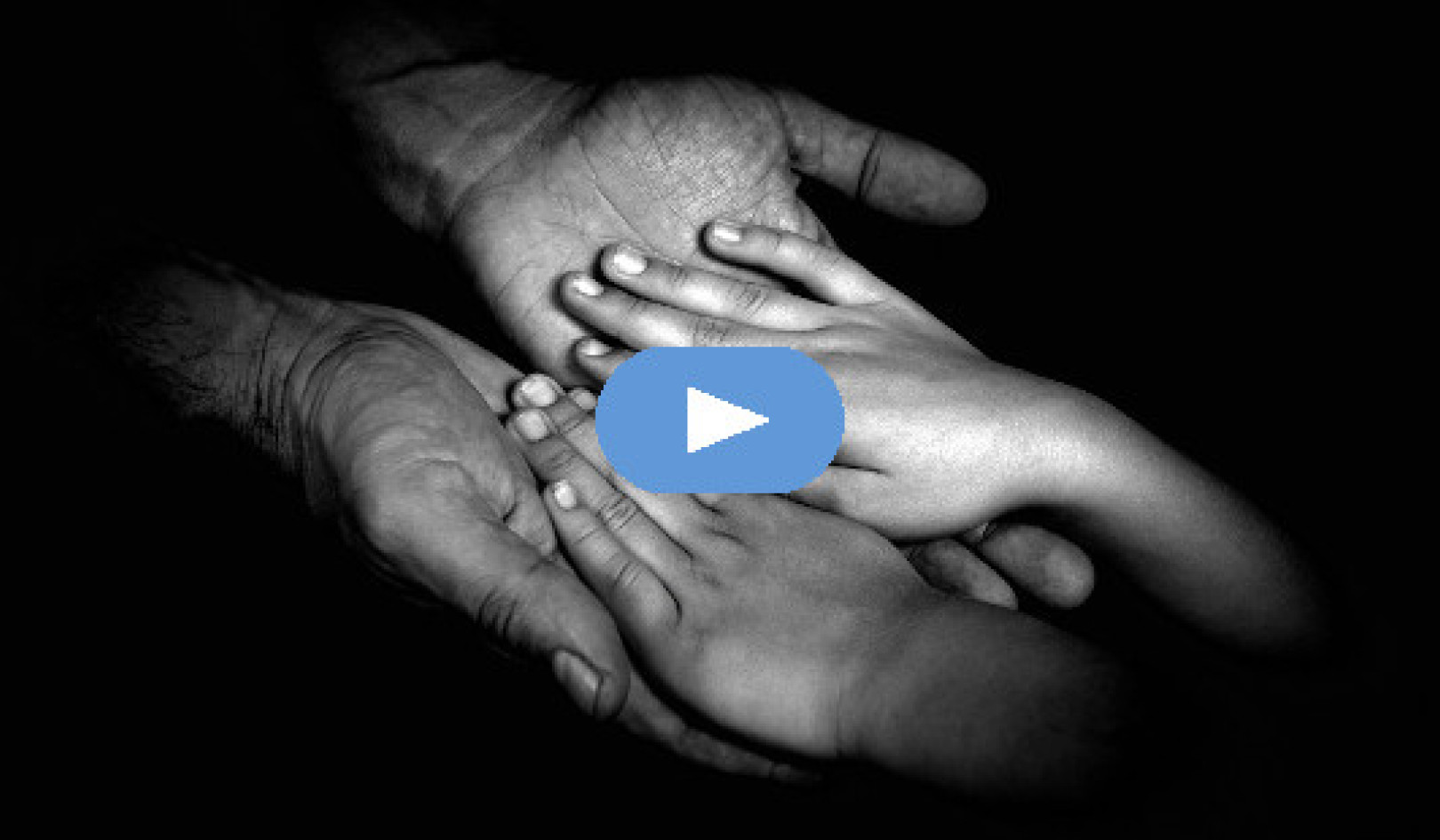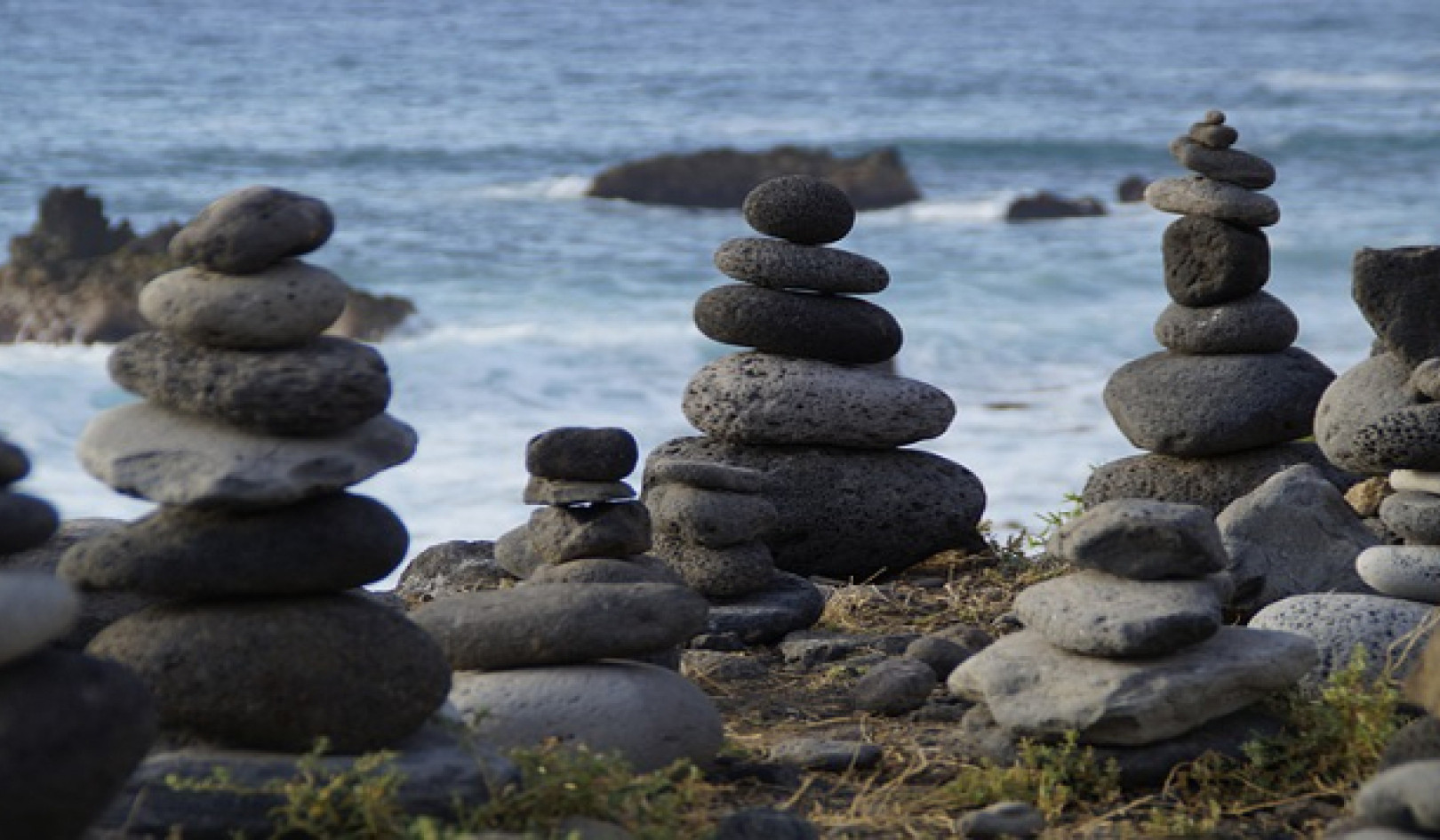
Human beings have essentially two modes or mind-sets that we operate or live in, with, of course, some shades of gray in between. We have what you might call a healthy mode, and another, which you can think of as reactive.
When we are in our healthiest state of mind, we "dance" with life. We're in the flow of things. We're patient, wise, thoughtful, and kind. We make good, sound decisions. We treat others with respect and compassion -- and we treat ourselves that way too. We make adjustments when necessary, and are flexible in our thinking. Reflect, for a moment, on your own life. Can you recall times when you have remained -- even for a moment -- in a healthy, calm state of mind, despite difficult circumstances?
Noticing The Difference
Our reactive state of mind is quite different. In fact, if you're anything like me, there are probably times when you wonder how the same person can respond (or react) so differently to a remarkably similar set of facts. One moment we can handle something really well, even when it's "big." But the next moment we fly off the handle! In a reactive state of mind, we are less patient. Instead of being effortless, our thinking is difficult. We churn and struggle. We are quick-tempered and judgmental. We are frustrated and hard on ourselves and others. Our problem-solving skills are limited, as are our perspective and vision.
It's helpful to notice and acknowledge the difference between these two ways of being (or states of mind) because it gives you a "home base" and a starting point; it gives you something to work with. It's very comforting to know the power of your own state of mind because, unlike so many other factors, it comes from within you. You have some capacity to control it.
Sometimes it's hard to believe, but ultimately we are the source of our own love. In the beautiful audiotape course To Love and Be Loved by Stephen and Ondrea Levine (published by Sounds True), the Levines spoke of a woman who said, "My mother can't allow me to love her." They pointed out something that took me some time to digest. In a very compassionate tone they pointed out that, "Actually, she can't stop you from loving her."
Our healthiest state of mind is that strong. It's a state of mind filled with love. When we are in it, we feel secure and at peace -- to some extent regardless of what's going on around us. This is our most natural state of mind.
Stuff Happens
Everyone gets reactive, and at times it seems we're always that way. And there's nothing wrong with this, nor am I aware of any way to completely eliminate it. But if you've ever felt the peace of your mental well-being, then you know it's in you and can be found again. Simply knowing that it's there is half the battle. By acknowledging the existence of a healthy state of mind, you can learn to trust it, and access it, more often. And this is key: When you're in a healthy state of mind, you'll know who to turn to, who your friends are, and what to do. That's not a pep talk, it's the truth.
Ironically, the way to access your inner health and strength is not by "trying," but by letting go. The idea is to clear our minds and let go of our analytical thinking when it's getting the best of us. When we do, and as we quiet down, a natural, orderly flow of thoughts will begin to emerge, including insights on what to do next. It's this quieter place where our deepest wisdom exists.
You'll notice that when you are in your healthiest state of mind, life will seem pretty manageable and effortless. The decisions and actions you need to make will flow, as if you are dancing. You will see right to the heart of the matter and you will act accordingly. On the other hand, when you slip into a more reactive state, you'll feel overwhelmed and stressed. The key is, you'll feel the difference.
What Mode Are You In?
My dear friend and coauthor of Slowing Down to the Speed of Life, Joe Bailey, equates our thinking to a walkie-talkie. He says we are either on "talk" or "listen." The metaphor suggests that we are either in a healthy state or a reactive one. And just like a walkie-talkie, in order to shift from talk to listen, it's necessary to know which mode you're in. But once you do, all that's necessary is to let go of the button, and the shift occurs automatically.
So it is when we're thinking. When we're reactive, churning, and trying too hard to figure everything out, the key is to recognize that we're doing so. Then, like silt settling in a pond, we do nothing except ease off and wait. Relax and trust that your wisdom will kick into gear. It requires no effort, but it does require faith, humility, and patience. It requires faith because you must trust that your wisdom and healthy mind-set do in fact exist. It requires humility because it's often hard to admit that effort is not the answer. Finally, it requires patience because even though the process is simple, it's not as easy as it sounds.
One thing is certain, however. If you can dance with it, making the necessary adjustments along the way, you can and will get through it. Give yourself plenty of time and space, and remain compassionate toward yourself. There is a part of you that is stronger than any of your problems.
Reprinted with permission of the publisher,
Hyperion. ©2002. www.hyperionbooks.com
Article Source
What About the Big Stuff?: Finding Strength and Moving Forward When the Stakes Are High
by Richard Carlson, Ph.D.
 With more than 21 million copies in print, Richard Carlson's bestselling Don't Sweat series has shown countless families, lovers, and workers how not to sweat the small stuff. Now, in his soothing and wise trademark tone, Carlson takes a different approach and discusses life's bigger issues, including dealing with the death of a loved one; how divorce affects your family and friends; confronting illness, whether in yourself or others; and managing difficult financial situations. In chapters such as 'Bouncing Back from Divorce,' 'Finding Life After Death,' and 'Feel Free to Grieve,' Carlson offers healing insight and heartfelt advice on how to find inner peace and strength to deal with the big stuff.
With more than 21 million copies in print, Richard Carlson's bestselling Don't Sweat series has shown countless families, lovers, and workers how not to sweat the small stuff. Now, in his soothing and wise trademark tone, Carlson takes a different approach and discusses life's bigger issues, including dealing with the death of a loved one; how divorce affects your family and friends; confronting illness, whether in yourself or others; and managing difficult financial situations. In chapters such as 'Bouncing Back from Divorce,' 'Finding Life After Death,' and 'Feel Free to Grieve,' Carlson offers healing insight and heartfelt advice on how to find inner peace and strength to deal with the big stuff.
Click here for more info and/or to order this paperback book or purchase the Kindle edition.
About the Author
 RICHARD CARLSON is the bestselling author of Don't Sweat the Small Stuff at Work; Don't Sweat the Small Stuff for Teens; and Don't Sweat the Small Stuff for Men, among many other titles. Richard passed away unexpectedly on December 13, 2006. Visit the Don't Sweat website at www.dontsweat.com.
RICHARD CARLSON is the bestselling author of Don't Sweat the Small Stuff at Work; Don't Sweat the Small Stuff for Teens; and Don't Sweat the Small Stuff for Men, among many other titles. Richard passed away unexpectedly on December 13, 2006. Visit the Don't Sweat website at www.dontsweat.com.
Books by this Author
at InnerSelf Market and Amazon

























